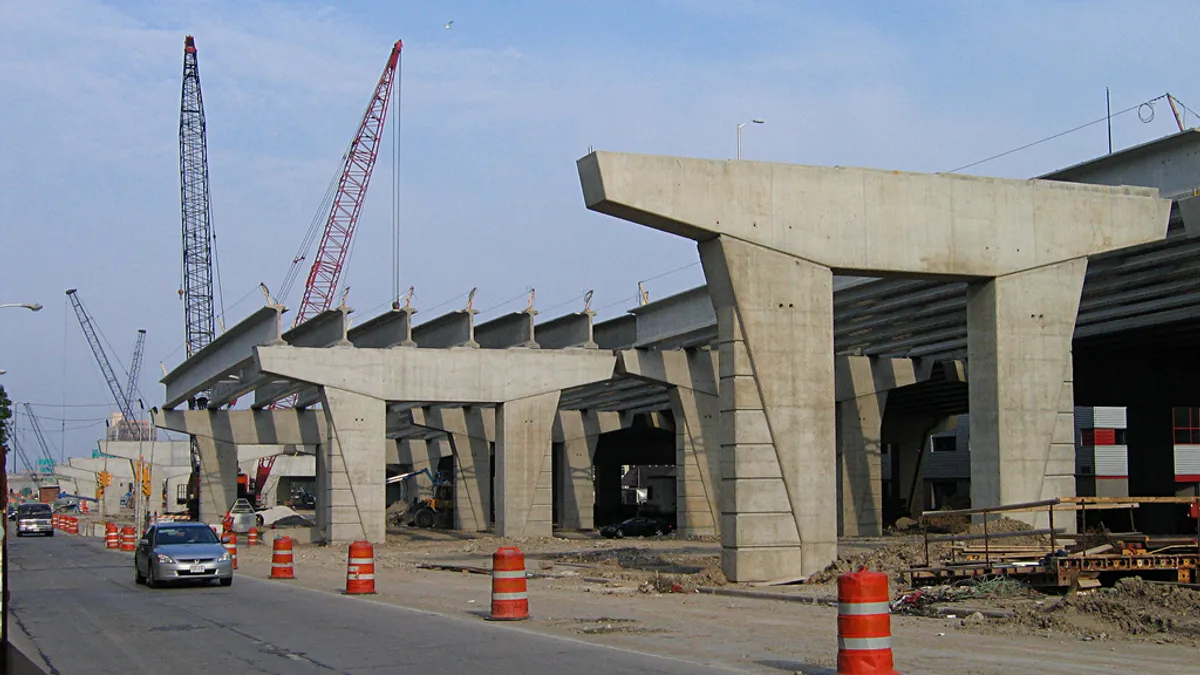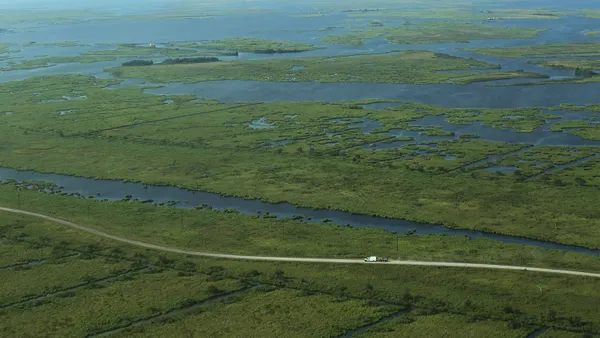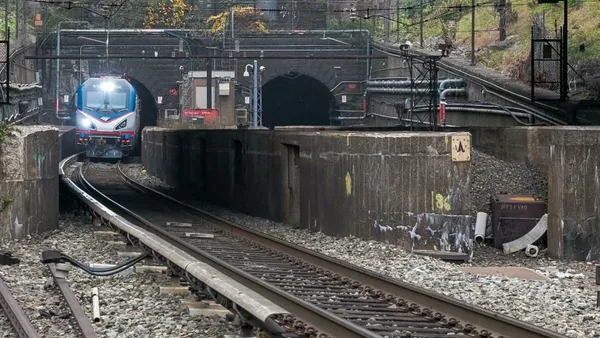Dive Brief:
- The U.S Department of Transportation announced that 40 projects across the U.S. have received a total of $484 million in grants from the eighth round of its Transportation Investment Generating Economic Recovery (TIGER) program, according to the Engineering News-Record.
- Of the total amount of grants allotted, the DOT awarded $193 million to highway and bridge project applicants, $97 million to pedestrian and bicycle paths, $93 million to transit projects, $54 million to maritime infrastructure and $47 million to freight and passenger rail projects.
- Transportation department officials said 585 applicants — with a total of $9.3 billion in total project costs — fought for the grants. They added that the majority of the 2016 recipients had applied for TIGER grants in previous years.
Dive Insight:
Although the TIGER program has been popular among both Republican and Democrat legislators, its future is still in limbo, as Congress has not yet approved its multiyear authorization, according to the ENR.
The announcement of the TIGER grant recipients follows the DOT's July announcement of the 18 winners of $800 million in FASTLANE funding, which aims to fund projects that promote "national shipping, transportation and port efficiencies." Officials said they received 200 applications totaling $9 billion in requests for the program. The department passed on funding infrastructure improvements for Baltimore's Port Covington redevelopment project but awarded Virginia $165 million for its $1.4 billion Atlantic Gateway initiative.
The fact that the most TIGER funding will go to highway and bridge projects follows a 2015 American Road and Transportation Builders Association (ARTBA) study that found nearly 10% of the 600,000 bridges in the U.S. were structurally deficient. The USDOT has estimated that there is a $115 billion backlog for repairs but said it would take 21 years to complete the work at the current investment rate.
Aside from federal aid, states and municipalities have struggled to come up with funding to pay for bridge rehab and other important infrastructure programs. In an American Society of Civil Engineers (ASCE) May report, the organization said the U.S. is at risk of losing 2.5 million jobs and $4 trillion in gross domestic product by failing to address the coming $1.44 trillion gap in infrastructure funding over the next 10 years.














